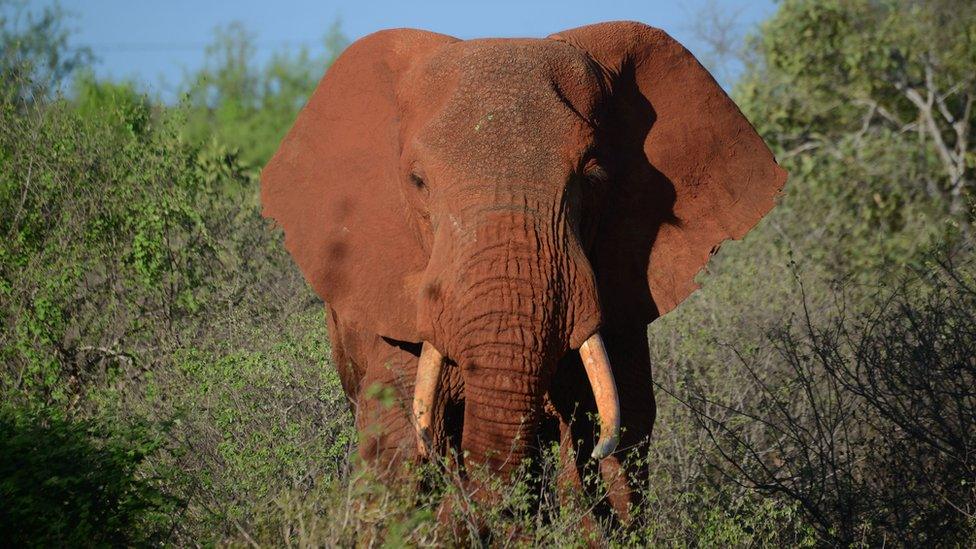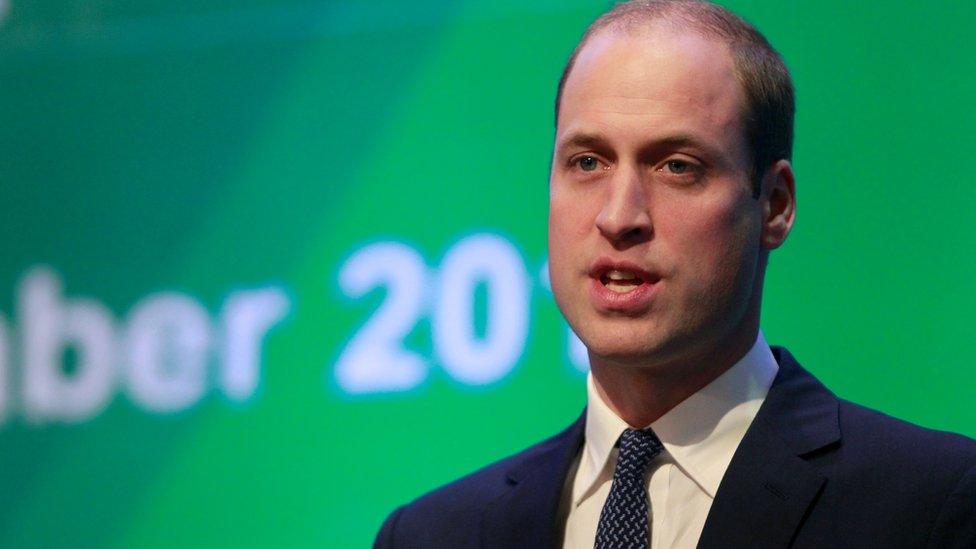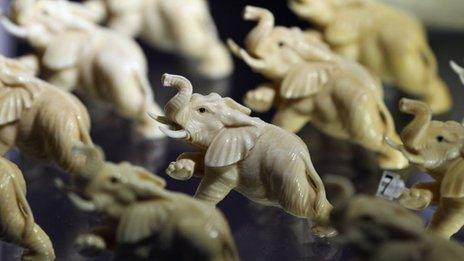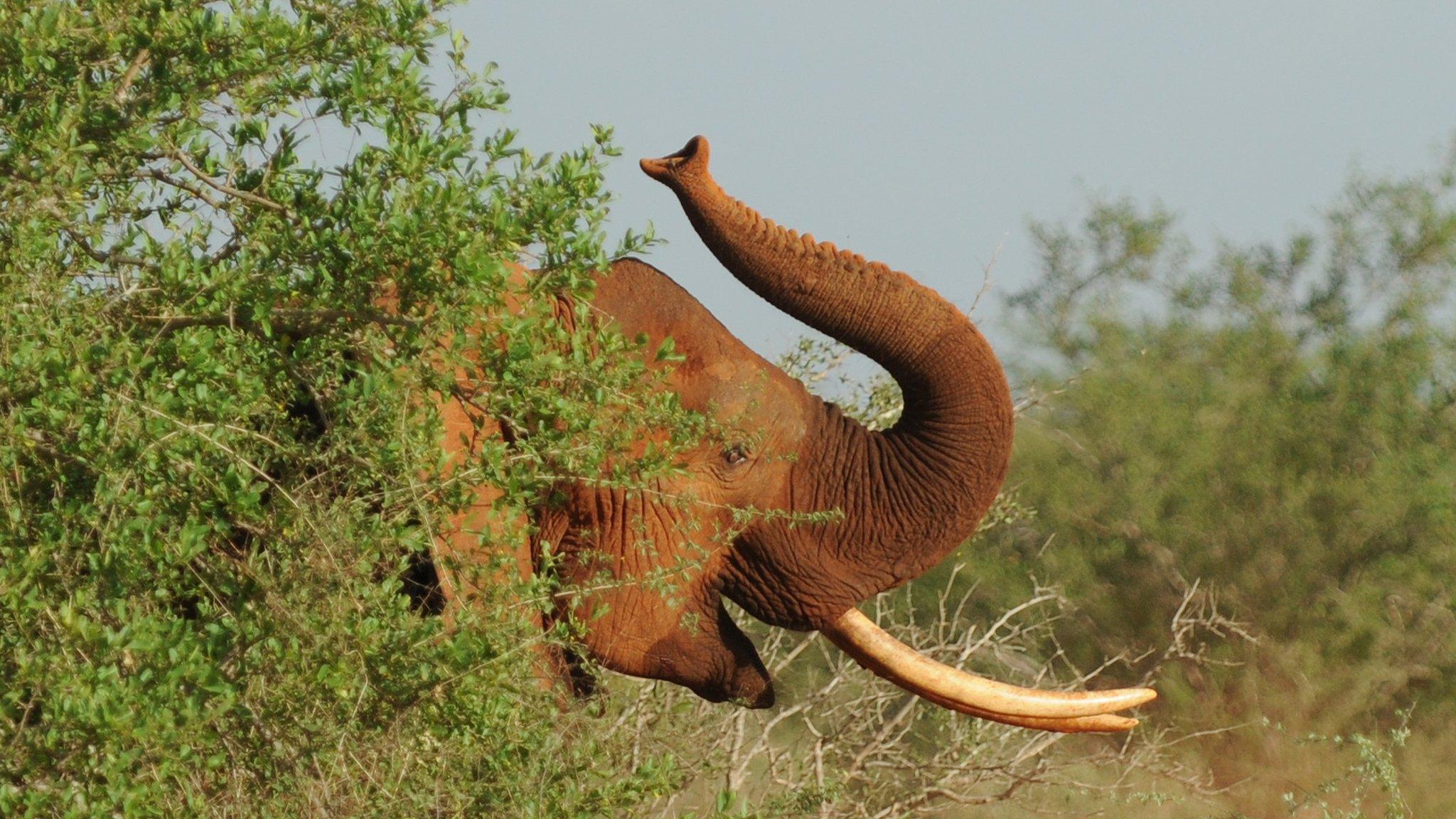BBC's Antiques Roadshow to review ivory objects policy
- Published

The BBC said the Antiques Roadshow, presented by Fiona Bruce, rarely shows ivory items
The BBC is to review its policy of allowing objects made of ivory to appear on the Antiques Roadshow.
The programme has faced criticism from wildlife campaigner Virginia McKenna, who said it presented ivory as a thing of beauty, not a symbol of destruction.
The UK prohibits the sale of ivory pieces produced after 1947, although the government has proposed banning the sale of all ivory items.
The BBC said it sought to raise awareness of the "horrors" of poaching.
Former Born Free actress Ms McKenna said in an interview with the Radio Times, external that the BBC should step away from the "parochial fascination with antiques at any price".
She said she was a regular viewer of the Antiques Roadshow, which she accused of continuing to represent ivory as a "desirable item, a thing of beauty instead of a symbol of destruction".
She added: "We cannot afford to put a value on bloody ivory."

Virginia McKenna said the show's inclusion of ivory was "out of touch" with public opinion
A spokeswoman for the BBC said ivory items rarely featured on the Antiques Roadshow.
"In recent years, on the rare occasions when we have examined an object, the Antiques Roadshow has sought to raise awareness of the debate around antique ivory," she said.
She said the programme would inform viewers about current legislation and draw attention to the "horrors of modern-day poaching".
The government is set to provide its response, external to a consultation that closed in December, which proposed a more comprehensive ban - with certain exemptions for items such as musical instruments and items of cultural importance.
China, one of the world's biggest markets for ivory, recently announced it was closing down its domestic market.
There are concerns that about 20,000 elephants are slaughtered every year due to the global demand in ivory, threatening their extinction within decades in some African countries.
- Published1 January 2018

- Published17 November 2016

- Published6 October 2017

- Published31 March 2017
